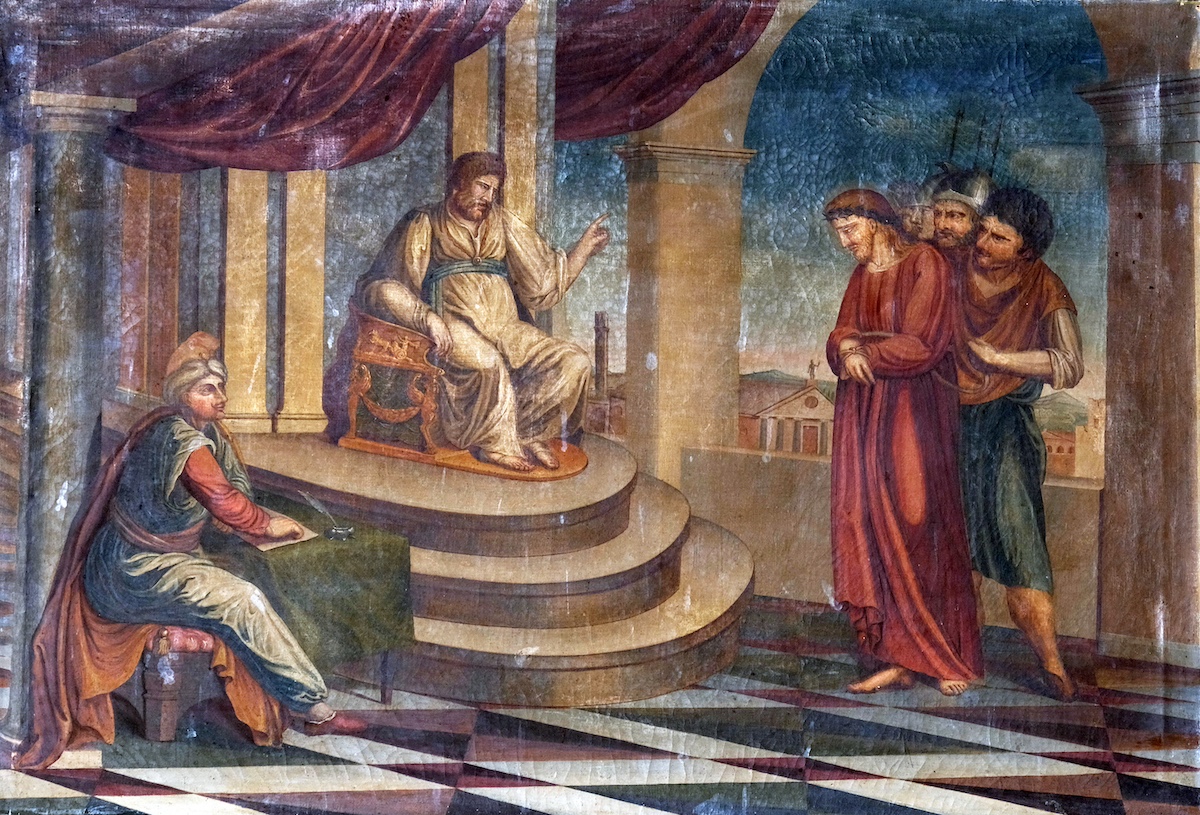Pontius Pilate, the fifth governor of the Roman province of Judaea, is historically known for his role in the trial and crucifixion of Jesus Christ. While the events surrounding the crucifixion are well-documented, Pilate's private life remains shrouded in mystery and speculation. In this exploration, we peel back the layers of history to delve into the potential scandalous secrets that might have lurked behind the closed doors of Pontius Pilate's personal life.
I. Pilate's Rise to Power: Ambition and Political Maneuvering
Pontius Pilate ascended to the position of governor in Judaea through a combination of political maneuvering and connections within the Roman Empire. His wife, often referred to as Claudia Procula in historical accounts, played a role in Pilate's appointment. The details of their relationship and whether it involved any intrigues remain speculative, providing a tantalizing glimpse into the political complexities of ancient Rome.
II. Claudia Procula: A Woman of Influence
While historical records mention Claudia Procula as the wife of Pontius Pilate, her background and influence within Roman society are subjects of speculation. Some historical accounts suggest that Claudia had connections to the imperial family, possibly through her lineage or prior marriages. Such connections could have implications for Pilate's political standing and decisions during his governance.
III. Dreams and Prophecy: Claudia Procula's Warning
One intriguing episode in the New Testament involves Claudia Procula sending a message to Pilate, urging him to have nothing to do with the "innocent" Jesus, based on a dream she had. The mysterious dream and its interpretation add an element of mysticism to Pilate's household, raising questions about Claudia's beliefs and how they might have influenced Pilate's decisions.
IV. The Question of Infidelity: Whispers in the Roman Courts
In the realm of historical fiction and speculation, some narratives explore the possibility of infidelity in Pilate's marriage. These tales suggest that Claudia Procula may have been entangled in romantic affairs, potentially impacting the political dynamics of Pilate's rule. While there is no concrete historical evidence supporting such claims, the ambiguity surrounding Claudia's life invites creative interpretations.
V. The Aftermath: Pilate's Fall from Power
Pilate's tenure in Judaea was marked by tension and conflict, culminating in the infamous decision to crucify Jesus. The aftermath of this decision, combined with other grievances, led to Pilate's recall to Rome. The lack of clear historical records detailing the reasons for Pilate's recall leaves room for speculation about whether scandals in his personal life contributed to his downfall.
VI. Legacy and Historical Interpretation
The dearth of detailed historical accounts about Pontius Pilate's personal life has allowed for various interpretations and fictionalized depictions in literature and media. Whether through novels, films, or other forms of storytelling, Pontius Pilate's character often becomes a canvas for exploring themes of power, morality, and the consequences of one's actions.
VII. The Enigma of Pontius Pilate
Pontius Pilate, a figure enshrined in the crucifixion narrative, remains an enigma when it comes to his private life. The potential for scandalous secrets adds layers of complexity to his character, sparking both historical curiosity and imaginative storytelling. As we peer through the annals of ancient history, the closed doors of Pilate's personal life stand as a portal to a realm where historical facts and speculative fiction converge.




